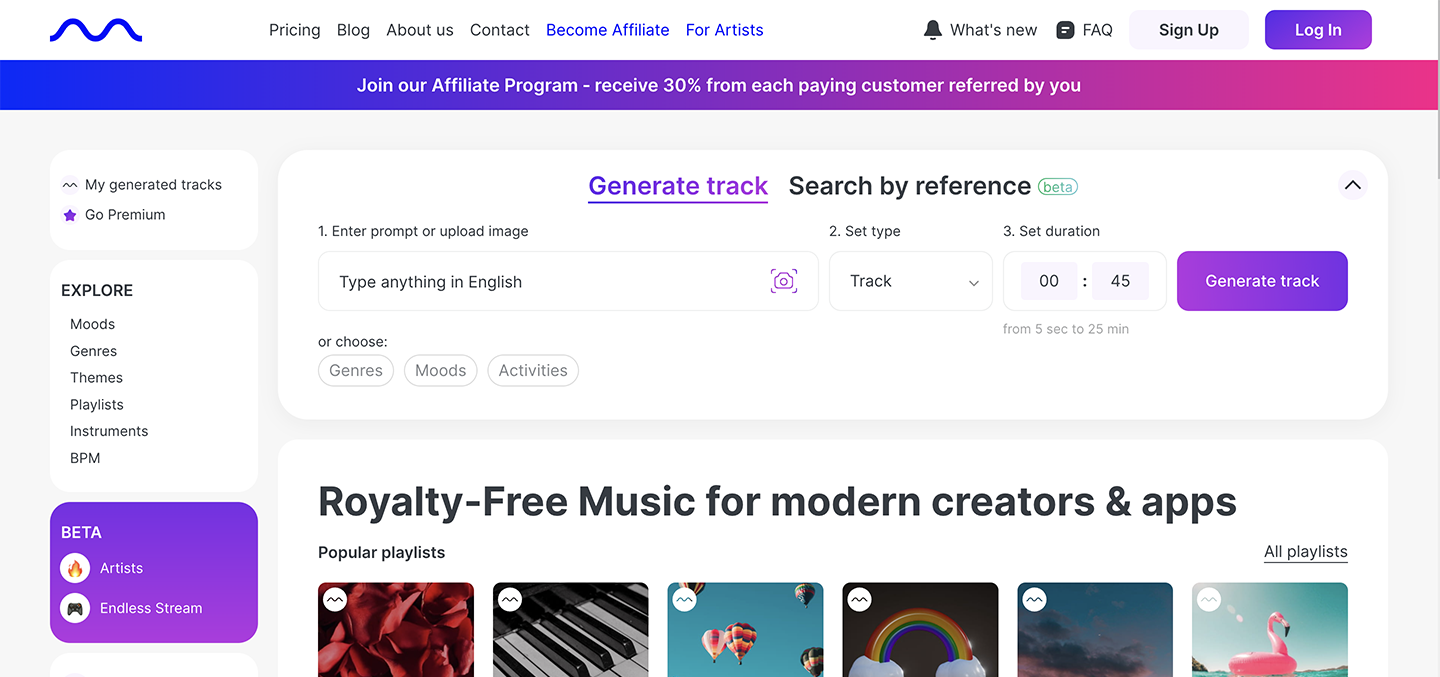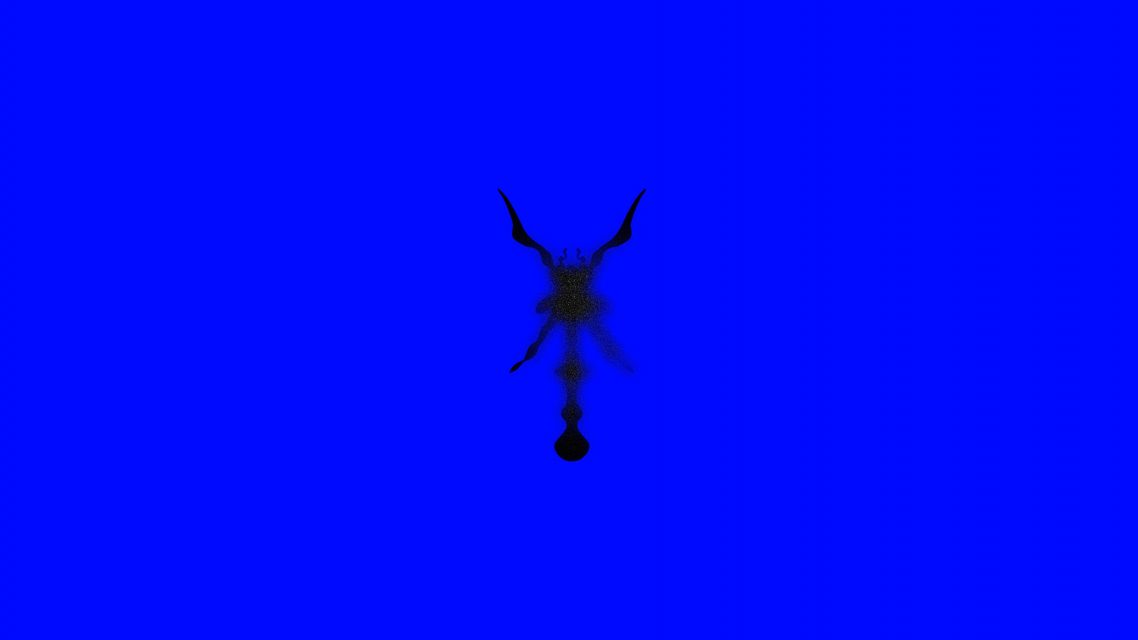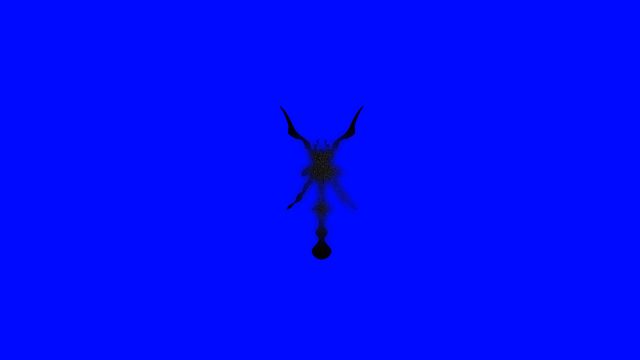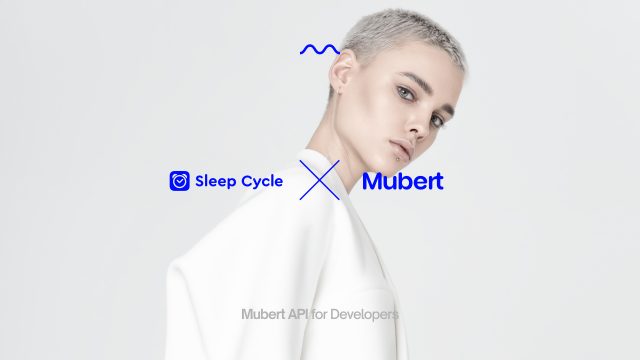
Create royalty-free AI music tracks with one click
Just describe what you want and get an instant track of any duration — and you will never meet any troubles with copyrights
Get startedStruggling with insomnia? There are many things you can do to become a better sleeper: drink less coffee and alcohol, avoid blue light rays, stay active during the day, and even take some melatonin supplements like Ginkgo biloba. Have you ever tried music as a sleep-inducing drug?
The science of sleep
Many psychological studies show that just playing relaxing music at bedtime can alleviate sleep disorders for many people.
In 2007 psychologist Lazlo Harmat gathered 94 students having poor sleep and divided them into two groups. One listened to the collection of relaxing classical music (like The Most Relaxing Classical, Edited by Virgin, 1999) for 45 minutes every night at bedtime for 3 weeks. Similarly, people in the other group were asked to listen to the audiobook CD containing 11 hours of short stories.
Maybe the novels by Zsigmond Moricz and 4 other Hungarian writers were not so entrancing. Still, by the end of the study, 30 out of the 35 people in the music group became ‘good sleepers,’ while the majority in the audiobook group still had problems trying to fall asleep.
Positive side-effects
It’s already known that sleep disorders may result in tiredness, anxiety, and problems in daytime functioning. Laszlo’s experiment showed that music can effectively regulate blood pressure and decrease depressive symptoms.
Other investigations of beneficial effects of music therapy by Hanser, Suzanne & Thompson, and Larry also support the idea of using slow, repetitive music such as Electronica and Ambient to enhance deep relaxation or falling asleep.
Tune-up your heart for better sleep
The main scientific explanation of the sedative effects of ‘lullabies’ is an ability of heart rate to synchronize with music beat.
Dr. med. Uwe Reinhardt observed a very stable 2:3 synchronization at a musical tempo between 48 and 42 BPM.
Laszlo also noted that sedative music with a slow tempo (42–65 BPM) induced relaxation and reduced activity in the ‘music group.’
Keep calm and listen to music
So you decided to become a better sleeper with the help of music – where to start?
Here is Mubert’s 30-minutes relaxing sleep music podcast on YouTube – optimal bed-time audio session.
But listening to the same track for 3 weeks (that’s how long it usually takes feel the difference) can make you sleep with boredom. That’s why especially for insomniacs, Mubert’s team has created a Sleep Music channel with real-time-generated streams.
B2C Health&FitnessAI Music Company
Mubert is a platform powered by music producers that helps creators and brands generate unlimited royalty-free music with the help of AI. Our mission is to empower and protect the creators. Our purpose is to democratize the Creator Economy.
Generate Track API for Developers













